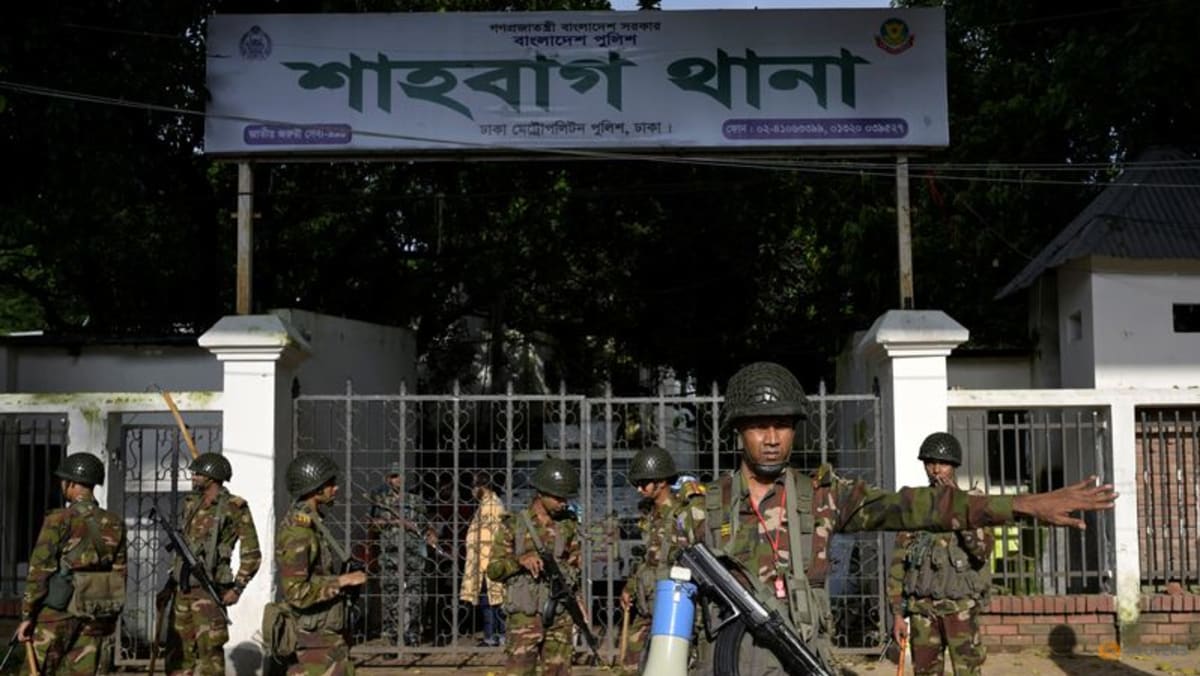In Australia, the country has well and truly gotten behind its national team, which it calls the Matildas.
Here, the two most-watched TV programs so far this year have been the team’s winning games against Canada in its final group stage match last week and against Denmark in the round of 16 on Monday night.
The latter reached 6.5 million viewers, according to broadcaster Channel 7, in a country of about 26 million. More than 75,000 passed through the stadium gates, and “fan festivals” — watch parties in public places around the country — were attended by thousands more.
Traditionally, there are two sports that dominate Down Under: the Australian Football League, in which a game popularly called “Aussie rules” is played, and the National Rugby League.
To the astonishment of some, the Australia-Denmark World Cup game drew a larger TV audience than the most recent grand final in each of those leagues.
The closest U.S. analogy would be “a scenario where women’s sport outranks the NFL,” said Kasey Symons, a research fellow in the Sport Innovation Research Group at Swinburne University of Technology in Melbourne.
But Australia’s widespread fandom for women’s soccer is a relatively new phenomenon.
Ann Odong, Football Australia’s media manager, wrote on social media that the Matildas’ send-off games in Australia before previous World Cups each drew less than 7,000 fans. “Scenes like this were unimaginable,” she added, sharing video of supporters going wild across the country during the Australia-Denmark clash.
This year, the nation is supporting a team with the potential to do well in a sport that is not traditionally its forte.
An Australian soccer team has never progressed beyond the quarterfinals of a world cup. Now, the Matildas have reached that stage even mostly without their injured captain and star, Sam Kerr.
The striker, widely considered one of the best players in the world, ran onto the pitch for the first time this tournament at the 80th minute of the team’s most recent game against Denmark, when the final score, 2-0, was already achieved.
Symons said women’s soccer has also created a welcoming culture that allows easy entry for outsiders, which has paid off within Australia during the World Cup.
“They don’t need to have this prior knowledge; they don’t need to know all the players, the stats and facts,” she said. “This is a space that’s fun, that’s exciting, that puts on an amazing sporting spectacle, and is also just a great time.
“It’s been welcoming for a really long time and that has brought a lot of people in, but now we’re seeing that on a really large scale,” she said.
It helps, too, that by co-hosting, Australia and New Zealand have given their citizens who may have an inclination to watch soccer in a major tournament the opportunity to do at reasonable hours in their time zone — a rarity, here.
In New Zealand, close to 1.9 million people, more than a third of the country’s population, have watched the tournament on television, according to FIFA.
Its national team, the Football Ferns, didn’t make it through the group stage — despite a thrilling win, its first at a World Cup, against Norway in the cup’s opening match.
But attendance looks strong: Two of the three remaining games to be played in the country have sold out. Those two are in Auckland, at a stadium with 50,000 seats.
The numbers represent a turnaround from the first stage of the Cup, which saw a sponsor, accounting firm Xero, give away 20,000 tickets amid concerns about lower sales in the smaller country before the tournament began.
The quarterfinal clash between Australia and France on Saturday is likely to again draw fervent viewership from Australians. James Johnson, Football Australia chief executive, said in a statement last week that the nation’s response to the World Cup had been a resounding return on the investment of its host organization.
“When we bid to host, we promised FIFA that we would co-host the biggest and best-ever edition of the tournament, and that is what we have seen so far,” he said.
#Australians #watch #World #Cup #soccer #games #record #numbers






